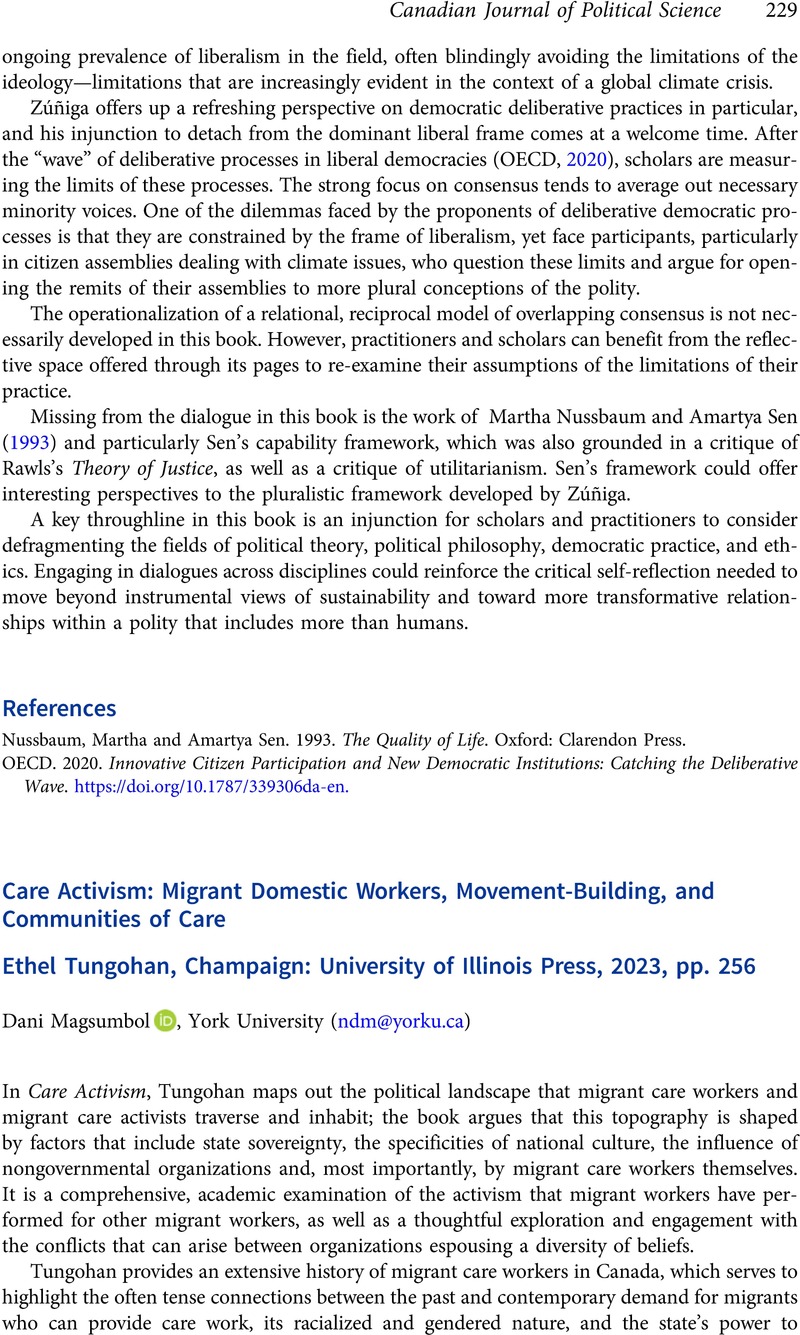No CrossRef data available.
Article contents
Care Activism: Migrant Domestic Workers, Movement-Building, and Communities of Care Ethel Tungohan, Champaign: University of Illinois Press, 2023, pp. 256
Review products
Published online by Cambridge University Press: 17 January 2024
Abstract

- Type
- Book Review/Recension
- Information
- Canadian Journal of Political Science/Revue canadienne de science politique , Volume 57 , Issue 1 , March 2024 , pp. 229 - 230
- Copyright
- Copyright © The Author(s), 2024. Published by Cambridge University Press on behalf of the Canadian Political Science Association (l’Association canadienne de science politique) and/et la Société québécoise de science politique


